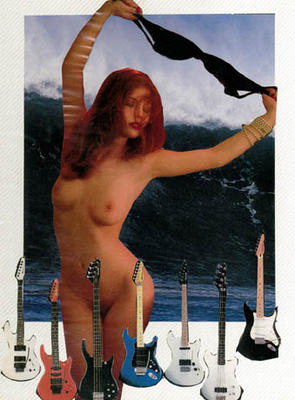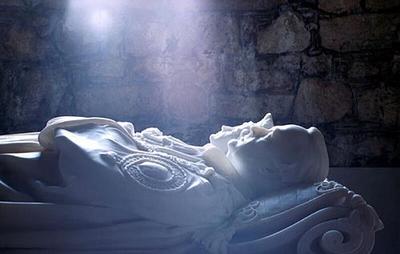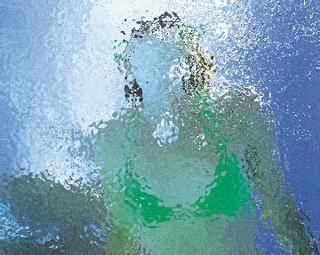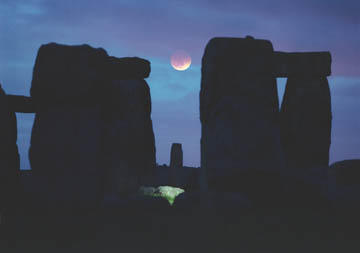I Seek the Darkness in the Light

Bronze deathless days, what a blade you conceal in your shrill augments! Summer now is at high mass, a towering spell of sun which burns the tops of every living thing. The world’s skull splits in the whack of you daily overbright ax-blade of hosannah, welling forth the dark fruit you have long ripened in caulish brute undertow.
They say I should seek the light in the darkness, but it is richer to seek the darkness hidden in the light. My soul’s essential travail is most frenetic there, groping the sun’s yellow underwear, my belling ache bleaching exactly where its spire consumes with fire. Burn me in your demon womb. Conflagrate these words that ten thousand shady numens choir in their amens. Here me at this darkest hour remit what you surfeit. Spear this lust into that black wake which rims the lake of fire your carve. Hammer hard this bronze. Shatter what resounds. Appeal no dreams which drown.
***
JUICE
I turned 13 during my first summer
in Florida, hard-ripped from my
Chicago home when my parents split.
We moved into a new subdivision near
Winter Haven that had been torn from
an orange grove. Just beyond our house
the streets unpaved themselves into thickets
where bulldozers jawed whole trees, eager
to uproot slow makings for a fast buck.
My wounds and the grove’s grafted into
each other through a season of fire,
my parents crossed like swords over
my puberty, old Florida parceled in
fruit bags of Eden. Loss and desire mingled,
sugared, swelled: then burst from every
pore in sweetly mutinous grog.
There were six orange trees in our
yard to plunder; I must have picked
and squeezed two quarts of fresh juice
every day, greedy for its slicksweet pour.
The first gulp always surprised me
with its sharp ardor, thick and loose,
springing a thirst inside mere parch.
That first summer was archangel-
ically hot, a humid blear which called
all earthborn things to high heaven.
I sent my dreams that way as I
hurled baseballs at a pitchback
screen, my wild pitches thonking
like heads on the wood fence.
To dive later into the pool was like
a belt of that juice: delirium plunged in
joy, the pool’s bottom a glade of bright
glitters shushed in blue. I swam lengths
underwater then perched at the edge,
head and shoulders resting on hot concrete
with my legs drifting below. Lulled by
Carole King on the radio and high soaring
crickets, I drowsed in an undulate weave
of ripening girls peeled from their swimsuits,
their nipples pealing a red roar.
Every afternoon it rained hard,
big boomers in from Tampa sweeping
through in great wet sheets which left
me the rest of the day feeling somehow
unslaked. At twilight, the remaining grove
on the other side of the fence grew fierce
with frogs and whatever else pulsed out there,
mounds of a sugar silk-saturate and dark.
On a small radio I listened to hard rock bands
in the black-lit eeriness of my room; eyewhites
and lint burned like hot moons while the
thickening night heaved on my windows in
a rich, purring growl. Oh the sharp tooth I
felt in those songs by Mountain and Cream,
trillingly pure, loud as thirst, raw as plunder.
Thirty years later, that first summer in Florida
chirrs loud in my veins. I sit here in this house
with the windows wide to the humid heat of 5 a.m.
Outside in this small town never far from a fast
Florida buck, sprinkler heads and crickets saw over
that old beast who sleeps only in the linear sense.
Some untamed thirst prowls here as ever, ripened
deep within. My hands ache for the heft of those
oranges warm from ghost orchards; to cleave their
nude fire; to squeeze them down hard on a mount
of ridged whirl, filling this glass past the brim with
remembered gold, spilling juice over all.
***
A MEMORABLE FANCY
William Blake
from The Marriage of Heaven and Hell, 1793
Once I saw a Devil in a flame of fire, who arose before an Angel that sat on a cloud, and the Devil utter’d these words:
“The worship of God is: Honoring his gifts in other men, each according to his genius, and loving the greatest men best: those who envy or calumniate great men hate God: for there is no other God.”
The Angel hearing this became almost blue; but mastering himself he grew yellow, & at last white, pink, & smiling, and then replied:
“Thou Idolater! is not God One? & is not he visible in Jesus Christ? and has not Jesus Christ given his sanction to the law of the ten commandments? and are not all other men fools, sinners, & nothings?”
The Devil answer’d: “Bray a fool in a mortar with wheat, yet shall not his folly be beaten out of him; if Jesus is the greatest man, you ought to love him in the greatest degree; now hear how he has given his sanction to the law of ten commandments: did he not mock at the sabbath and so mock the sabbath’s God? murder those who were murder’d because of him? turn away the law from the woman taken in adultery? steal the labor of others to support him? bear false witness when he omitted making a defense before Pilate? covet when he pray’d for his disciples, and when he bid them shake off the dust of their feet against such as refused to lodge them? I tell you, no virtue can exist without breaking these ten commandments. Jesus was all virtue, and acted from impulse, not from rules.”
When he had so spoken,I beheld the Angel, who stretched out his arms, embracing the flame of fire, & he was consumed and arose as Elijah.
NOTE:This Angel, who is now become a Devil, is my particular friend: we often read the Bible together in its infernal or diabolical sense, which the world shall have if they behave well.
I have also the Bible of Hell, which the world shall have whether they will or no.
One Law for the Lion & Ox is Oppression.
***
Theos, the indeterminate divine, was an invasion of body and mind. It was our becoming intimate with what is most alien.
-- Robert Calasso, The Marriage of Cadmus and Harmony
***
FIRE SPRITE FLORIDA
Indeed some fire-sprite may
be at work, spawn of every sun
which aches to rise and
languish above the Western
gulf, refusing to go down.
He darts across the state
igniting the souls of pine
& subdivisions & sleeping lakes
like paper boats then
dances round their flame.
Out on the beaches the
young worship him, sprawled
on towels & hip-hop smashing
from car radios. Browning
in his orisons. In the bars
the dactyls serve his ire,
pouring out fistfulls
of gasoline while on the
TV brightly-colored street
cars go round and round
and round in a calyx of
white-hot speed.
The alligators feel him in their
gut edging from perch to shore
to raven on poodles and
the noggins of boys
too foolish not to dive in.
And the eyes of crazed
suburban mothers
kilned in debt and misery
are hottest in him,
their irises like fangs
as they cooly scan
sons and daughters crying
everywhere. What hour
of my summer day
is not some precipice of him,
an invitation in the brilliant
door to strip raw the hungry
hymn and glut on pipes of fire.
His cartel’s more potent than
every pulpit in the state
which crows brimstone taboos,
the one eternal in its fires,
the other right here right now
in purest puerile pyre,
merry and malicious
and so in infernally salacious.
Bask and dream in it if you will,
backyard Sunday snoozer:
He’s whispering to those
basking cells on tits and
nose to rise and riot
while you drowse.
Your heart on his
barbie, his fork in
your meat of carouse.
***
But even fire has its attenuation, a beach beyond desire. Love burns inside Eros for Psyche, warming even the heart its Hades. It sates by not quenching, by delving seas which only seem blue, whetting not passions but a passionate embrace of surrender. Great fires burn hottest where the sun can’t shine.
***
THE GREAT FIRES
Jack Gilbert
Love is apart from all things.
Desire and excitement are nothing beside it.
It is not the body that finds love.
What leads us there is the body.
What is not love provokes it.
What is not love quenches it.
Love lays hold of everything we know.
The passions which are called love
also change everything to a newness
at first. Passion is clearly the path
but does not bring us to love.
It opens the castle of our spirit
so that we might find the love which is
a mystery hidden there.
Love is one of many great fires.
Passion is a fire made of many woods,
each of which gives off its special odor
so we can know the many kinds
that are not love. Passion is the paper
and twigs that kindle the flames
but cannot sustain them. Desire perishes
because it tries to be love.
Love is eaten away by appetite.
Love does not last, but it is different
from the passions that do not last.
Love lasts by not lasting.
Isaiah said each man walks in his own fire
for his sins. Love allows us to walk
in the sweet music of our particular heart.
“
***
SABBATHS 1980 VI
Wendell Berry
The intellect so ravenous to know
And in knowing hold the very light,
Disclosing what is so and what not so,
Must finally know the dark, which is its right
And liberty; it’s blind in what it sees.
Bend down, go in by this low door, despite
The thorn and briar that bar the way. The trees
Are young here in the heavy undergrowth
Upon an old field worn out by disease
Of human understanding; greed and sloth
Did bad work that this thicket now conceals,
Work lost to rain or ignorance or both.
The young tree makes a darkness here that heals,
And here the forms of human though dissolve
Into the living shadow that reveals
All orders made by mortal hand or love
Or thought come to a margin of their kind,
Are lost in order we are ignorant of,
Which stirs great fear and sorrow in the mind.
The field, if it will thrive, must do so by
Exactitude of thought, by skill of hand,
And by the clouded mercy of the sky;
It is a mortal clarity between
Two darks, of Heaven and of earth. The why
Of it is our measure. Seen and unseen,
Its causes shape it as it is, a while.
O bent by fear and sorrow, now bend down,
Leave word and argument, be dark and still,
And come into the joy of healing shade.
Rest from your work. Be still and dark until
You grow as unopposing, unafraid
As the young trees, without thought or belief;
Until the shadow Sabbath light has made
Shudders, breaks open, shines on every leaf.
















